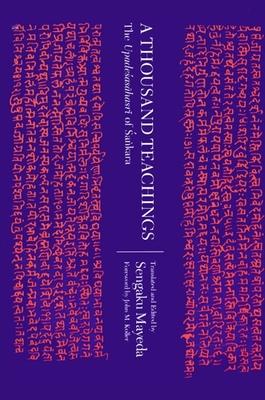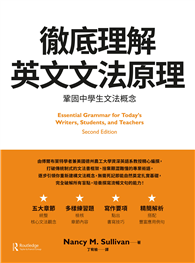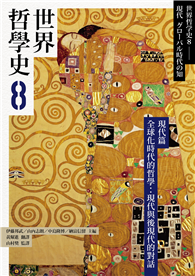This is the best introduction to Vedanta and to Śaṅkara’s philosophy. The Upadeśasāhasrī, or A Thousand Teachings consists of a metrical part and a prose part. In the metrical part, Sankara discusses the basic philosophical problems of non-dualism, at the same time refuting the teachings of other philosophical schools. In the prose part, he explains how to teach the way to self realization--to enlightenment.
Śaṅkara and the great Abhinavagupta are generally regarded as the two greatest thinkers in the long history of Indian philosophy. Sankara represented Advaita Vedanta, a non-dualistic view of ultimate reality. Most of his works are commentaries on classics of Indian thought. A Thousand Teachings is the only non-commentarial work that can be attributed to him; the other independent writings ascribed to him are probably spurious.
| FindBook |
有 1 項符合
A Thousand Teachings: The Upadesasahasri of Sankara的圖書 |
 |
A Thousand Teachings: The Upadesasahasri of Sankara 作者:Mayeda 出版社:State University of New York Press 出版日期:1992-01-31 語言:英文 規格:平裝 / 288頁 / 22.9 x 15 x 1.5 cm / 普通級 |
| 圖書館借閱 |
| 國家圖書館 | 全國圖書書目資訊網 | 國立公共資訊圖書館 | 電子書服務平台 | MetaCat 跨館整合查詢 |
| 臺北市立圖書館 | 新北市立圖書館 | 基隆市公共圖書館 | 桃園市立圖書館 | 新竹縣公共圖書館 |
| 苗栗縣立圖書館 | 臺中市立圖書館 | 彰化縣公共圖書館 | 南投縣文化局 | 雲林縣公共圖書館 |
| 嘉義縣圖書館 | 臺南市立圖書館 | 高雄市立圖書館 | 屏東縣公共圖書館 | 宜蘭縣公共圖書館 |
| 花蓮縣文化局 | 臺東縣文化處 |
|
|
圖書介紹 - 資料來源:博客來 評分:
圖書名稱:A Thousand Teachings: The Upadesasahasri of Sankara
內容簡介
作者簡介
Sengaku Mayeda, Professor and Chairperson of the Department of Indian Philosophy and Buddhist Studies at the University of Tokyo, is the world’s foremost authority on the Upadesaasahasri. With this translation and an extensive introduction to Sankara’s life and thought, he makes this classic of Indian philosophy accessible to a wider readership.
|






![塔木德:猶太人的致富聖經[修訂版]:1000多年來帶領猶太人快速累積財富的神祕經典 塔木德:猶太人的致富聖經[修訂版]:1000多年來帶領猶太人快速累積財富的神祕經典](https://media.taaze.tw/showLargeImage.html?sc=11100697818)




